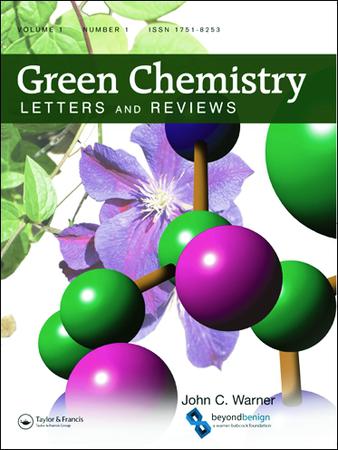Recent development of integrating CO2 hydrogenation into methanol with ocean thermal energy conversion (OTEC) as potential source of green energy
IF 5.8
3区 化学
Q1 CHEMISTRY, MULTIDISCIPLINARY
引用次数: 1
Abstract
ABSTRACT Renewable energies have gained momentum in energy transition agenda based on the benefit of lower emissions of carbon and its compounds. Many technologies have been developed at different technology readiness levels addressing climate change impact with reduced emissions of greenhouse gases such as CO2. Herein the perspective article, we have reviewed CO2 capture technologies, such as absorption, adsorption, membrane separation, cryogenic separation and separation via hydrate formation, with further focus on the possibility of utilising ocean thermal energy conversion (OTEC) power to generate green hydrogen and produce low carbon fuels. The potential of OTEC generated hydrogen to produce methanol was explored using a simulation exercise utilising a scenario from a real-life offshore gas production facility. By varying the catalysts and reaction conditions, the findings showed encouraging results of CO2 conversion of ≥50% and product yield of ≥80%. Considering single path reaction with 90%, 95% and 99% of recycling, the highest prediction of methanol production coupled with CO2 hydrogenation process was 276.59 metric tonnes per day (MTPD). In addition, based on the assumption of 13.5 million standard cubic feet per day (MMSCFD) of CO2 produced, 204 MW of OTEC power is required to convert approximately 97.82 MTPD of hydrogen for methanol production making it potentially an industrially viable process. GRAPHICAL ABSTRACT二氧化碳加氢制甲醇与海洋热能转换(OTEC)作为潜在绿色能源的新进展
本文章由计算机程序翻译,如有差异,请以英文原文为准。
求助全文
约1分钟内获得全文
求助全文
来源期刊

Green Chemistry Letters and Reviews
CHEMISTRY, MULTIDISCIPLINARY-GREEN & SUSTAINABLE SCIENCE & TECHNOLOGY
CiteScore
9.10
自引率
3.00%
发文量
48
期刊介绍:
Green Chemistry Letters and Reviews is an Open Access, peer-reviewed journal focused on rapid publication of innovative new syntheses and procedures that reduce or eliminate the use and generation of hazardous materials. Reviews of state-of-the-art green chemistry technologies are also included within the journal''s scope.
Green Chemistry Letters and Reviews is divided into three overlapping topic areas: research, education, and industrial implementation. The journal publishes both letters, which concisely communicate the most time-sensitive results, and reviews, which aid researchers in understanding the state of science on important green chemistry topics. Submissions are encouraged which apply the 12 principles of green chemistry to:
-Green Chemistry Education-
Synthetic Reaction Pathways-
Research and Process Analytical Techniques-
Separation and Purification Technologies-
Renewable Feedstocks-
Degradable Products
 求助内容:
求助内容: 应助结果提醒方式:
应助结果提醒方式:


